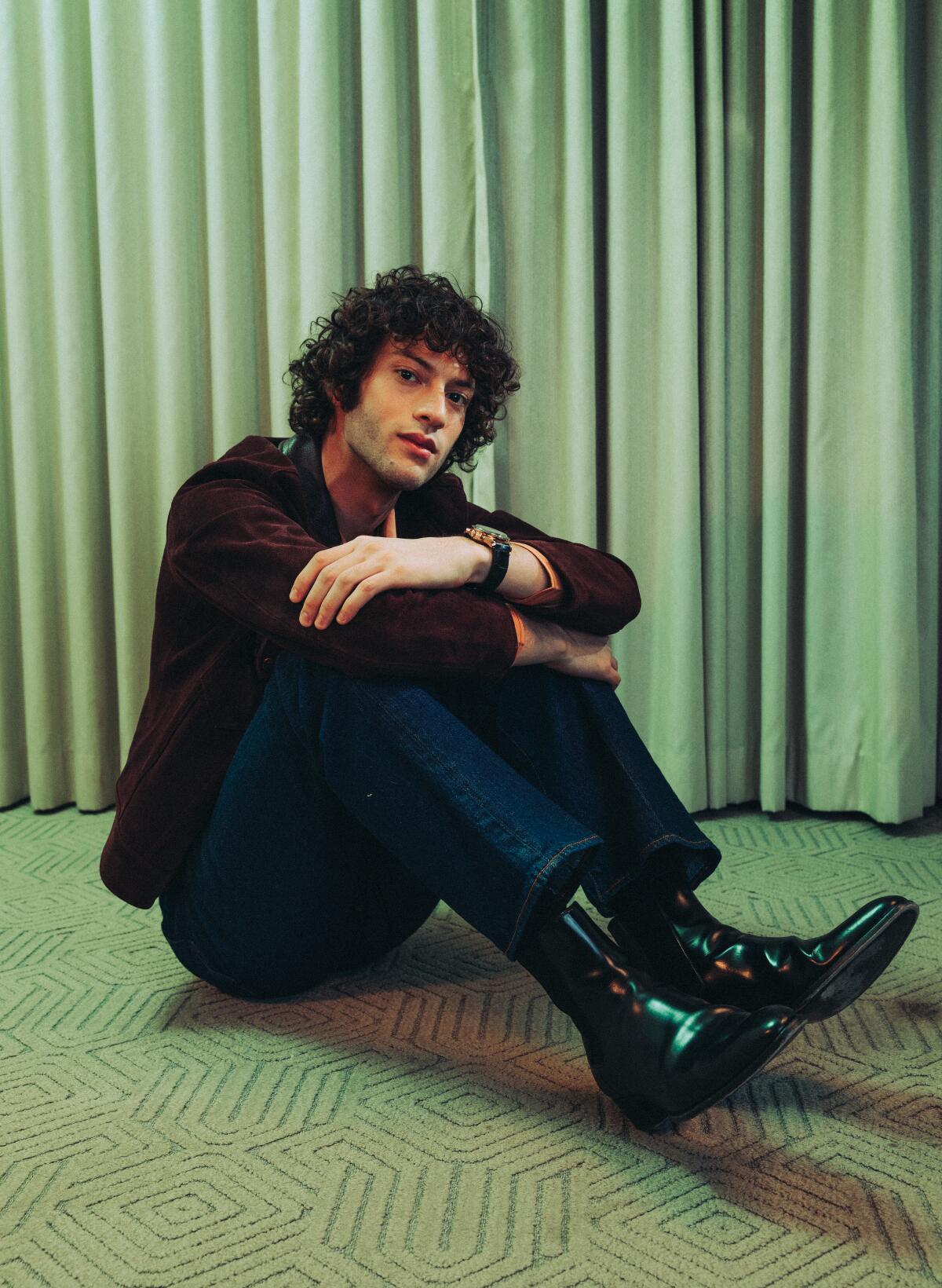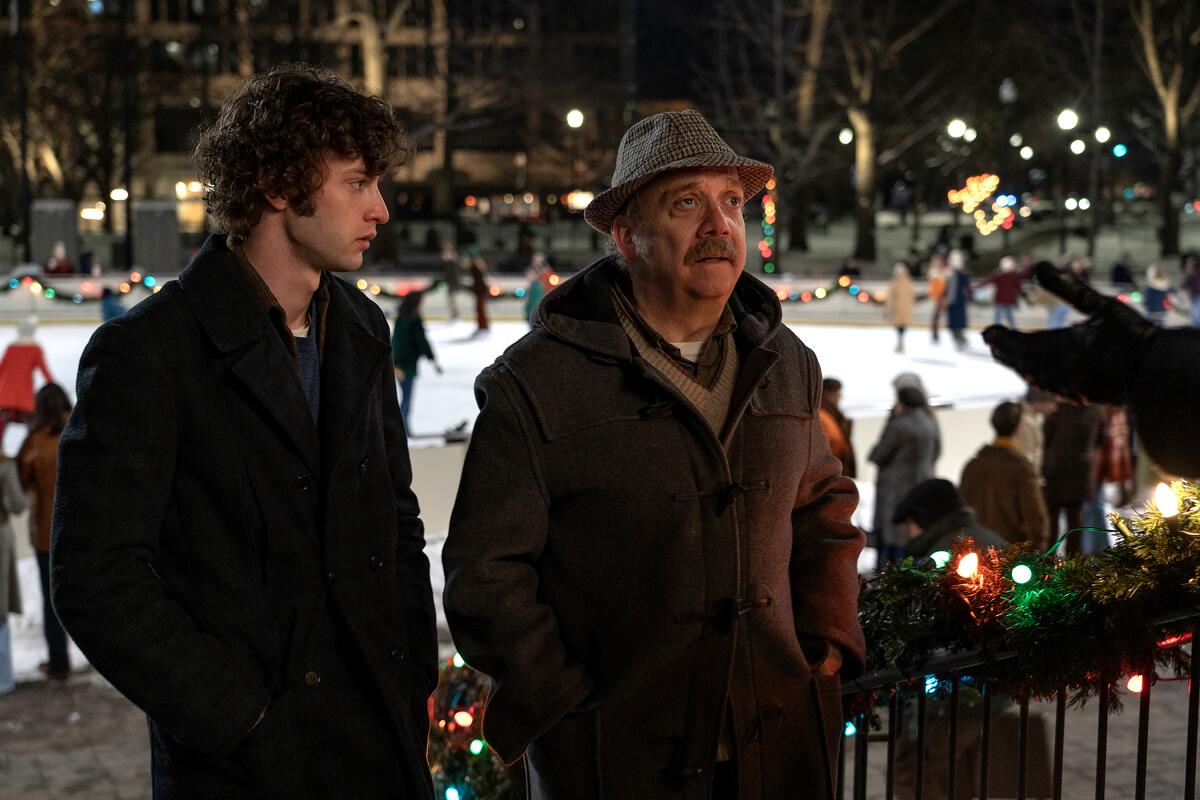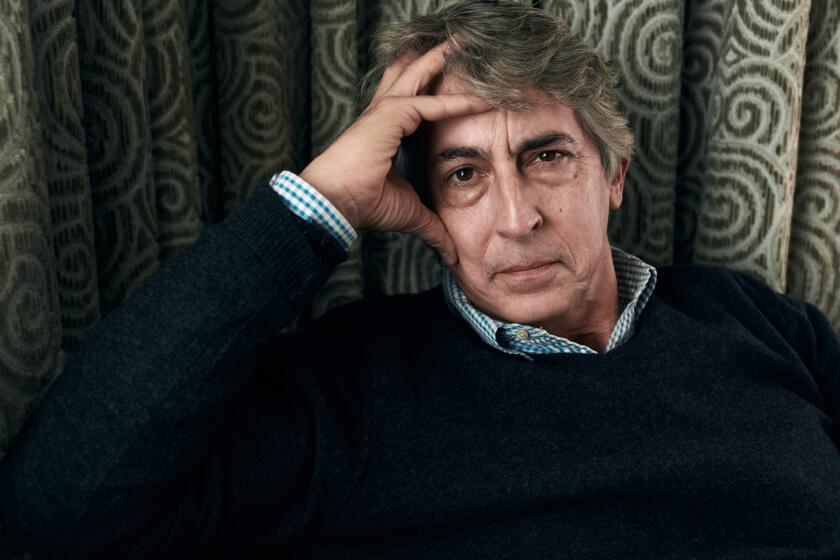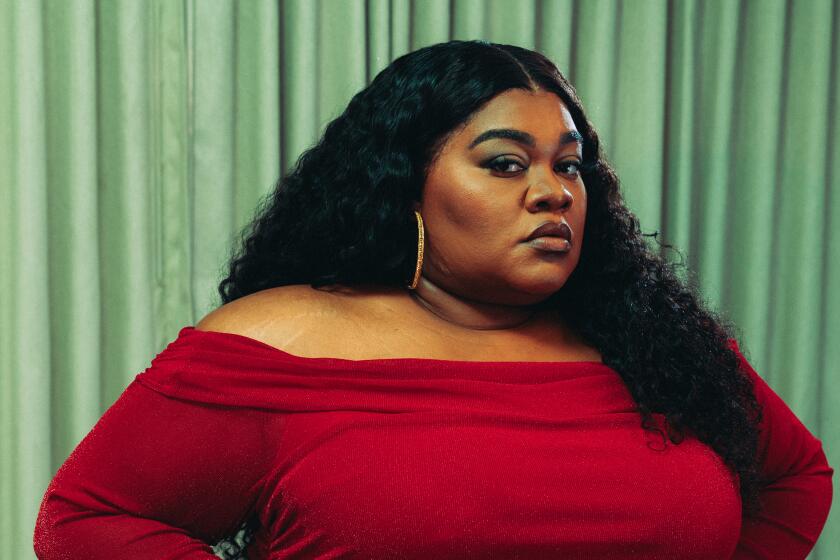Meet Dominic Sessa — the rare unicorn of ‘The Holdovers’

- Share via
All Dominic Sessa really wanted was to play hockey. Stick and puck were never far away as he grew up in Ocean City, N.J.; acting was never part of the equation. When he got into Deerfield Academy, a Massachusetts boarding school, he figured he was getting close to his dream of skating for a New England prep school.
As it turned out, his best laid plans were broken along with his femur before his freshman season had even started. Required to participate in another activity, he figured he’d give drama a try. At first, all he could do was sit and read lines. But that was enough to give him the bug. He was soon a mainstay in school plays. He had just finished the fall play of his senior year, Neil Simon’s “Rumors,” when he heard the casting director for a new movie from Oscar winner Alexander Payne was poking around campus. The movie was called “The Holdovers.” The setting: a New England boarding school. Deerfield was among the locations.
And that’s how an unknown rookie actor found his way to the heart of one of the year’s most acclaimed films.
The film, says the director, is trying to take the idea of the period film “one step further”: not just to conjure up the mood of a bygone time, but to recapture a movie-making sensibility that it pioneered.
Sessa, now 21, still can’t quite believe it.
“It’s insane,” he said recently in a video interview from Los Angeles. “I mean, it’s almost like its own movie script. It’s a crazy story. And now people are actually seeing the movie in a theater. Being at the center of that is incredibly surreal.”
Tall and rangy, with a mop of dark hair, Sessa exudes a blunt, precocious charm. His “Holdovers” character, Angus Tully, is a smart-aleck malcontent, angry that his mom has quickly remarried, irate that he’s stuck over the holidays at his New England boarding school, the fictional Barton Academy, with a misanthropic history teacher (Paul Giamatti) and the school’s grieving cook (Da’Vine Joy Randolph), whose son has died in Vietnam. As the Christmas week progresses in the 1970-set film, the three form a bond based in their shared outsider status.
Payne, a screenwriting Oscar winner for “Sideways” and “The Descendants,” thought it would be a good idea to scour the film’s boarding school locations for potential actors, if not necessarily a lead. The casting director, Susan Shopmaker, did her due diligence at Deerfield, saw Sessa read and reported back to Payne: We might just have someone here.

Payne auditioned Sessa, and he came to agree. The director was amazed to find that rarest of unicorns: a natural film actor, performing in obscurity.
“He is a remarkably talented young actor,” Payne said in an email. “Dominic instinctively understood how to access his own life experience for an emotionally intelligent performance. Once convinced that this newcomer had the ability for a leading role, I cast him because he also possessed a face I wanted to see healed by the story the movie was to tell.”
Sessa is now the 21st century equivalent of the starlet discovered at the local drug store. He wasn’t even a big movie watcher, though Payne, a noted cinephile, took care of that quickly enough. Among the filmmakers whose movies the two screened was Hal Ashby, whose shaggy, rebellious spirit hovers over “The Holdovers.” Sessa was particularly taken with “The Last Detail” (1973), in which two cynical Navy lifers (Jack Nicholson and Otis Young) escort a baby-faced petty criminal (Randy Quaid) to prison.
“We actually got to watch that one in the theater,” Sessa says. “Just to see Nicholson’s performance … that’s not necessarily what informed what we were doing in ‘The Holdovers,’ but just the way the actors behaved, the way they looked, all of those things really helped put me into this world when I was finally on set.”
The fleshed out character of a grieving woman should lead the actor to better parts. More rewarding work. Respect.
Indeed, Sessa has the appeal of an actor from that earlier era, when performers made their names with presence, chops and attitude more than matinee idol looks. “He’s an old soul at heart,” says Randolph. “He can just absorb so quickly, because he doesn’t have anything else to base his performance off of. So he had a real willingness to learn, and he clearly was working with Alexander intimately to make it happen. I’m very proud of him for that.”
Actors and athletes — and Sessa has now been both — are good at talking about how they’re just happy to be here. With Sessa, natural acting talent or no, you can tell it’s no act. He’s as unspoiled as they come. Even the hurry-up-and-wait schedule of making a movie was exciting to him, something to savor, and, barring an unforeseen return to the ice, something to look forward to.
“I just had a blast running around a film set every day and just watching,” Sessa says. “I mean, even when I wasn’t called to set or called to be on camera, I would just hang out and watch what’s going on. You can’t have an experience like that and then not make the most of it.”
More to Read
From the Oscars to the Emmys.
Get the Envelope newsletter for exclusive awards season coverage, behind-the-scenes stories from the Envelope podcast and columnist Glenn Whipp’s must-read analysis.
You may occasionally receive promotional content from the Los Angeles Times.










